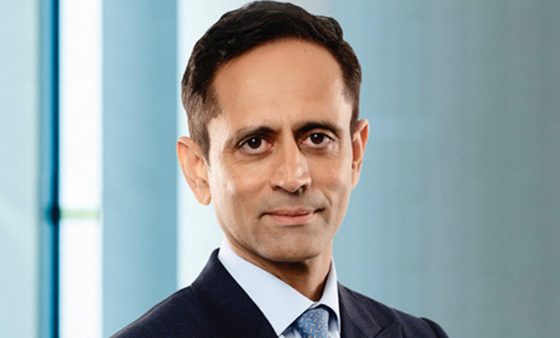Vinod brings over 30 years of telecommunications experience to Vodafone, gained in a wide variety of global roles spanning Europe, Asia Pacific and the Americas. Most recently, Vinod was Chief Executive Officer and Managing Director of Tata Communications, where he first joined as its Chief Operations Officer in 2004.
You often talk about large organisations’ duty to support their SME counterparts with digital transformation. Why do you think this should be the case?
The success of every economy relies upon the success of its SMEs. They are the beating heart of Europe, driving economic growth and success across the continent. There are 24 million small businesses across Europe alone, employing a total of 95 million people and generating €4 trillion a year, and they’re integral to innovation and job creation, creating 85% of all new jobs each year.
The pandemic dramatically impacted SMEs and they now need support. Some of this support must come from governments with policies to help SMEs bounce back, but their larger enterprise counterparts must also step up. One way that large organisations can really help is by assisting SMEs to overcome the common challenges they face when implementing technology. This means not only helping them find fit-for-purpose digital tools but providing them with the guidance they need to use them well.
Why is it especially important to do it now, during such a turbulent time for so many smaller companies?
Even before the pandemic, many SMEs were struggling to find the time to properly invest in their digital setup. Digital transformation isn’t something that can be achieved overnight but is actually a series of projects and initiatives. These projects are often delayed or side-lined due to more urgent day-to-day issues that creep in and need to be dealt with immediately. And in times of crisis, this is intensified.
However, digital skills have been a lifeline in a world transformed by COVID-19. Almost every business has had to operate remotely, with collaboration platforms and other digital technologies vital to maintaining operations. Estimates say that around ten years of transformation happened in just ten weeks and some SMEs were better placed to deal with this transformation than others. Our own research has found that the more digitally mature SMEs responded better to the volatility of the pandemic.
The success of every economy relies upon the success of its SMEs. They are the beating heart of Europe, driving economic growth and success across the continent.
It is clear that now, more than ever, there is a real digital divide among SMEs that needs closing.
Too many SMEs face barriers when adopting digital services and are less likely to take advantage of new technologies than their larger counterparts. Our research found that there are many reasons why SMEs have struggled to digitise: 51% said that they had struggled to identify the right technology to use, or the right supplier and 38% of SMEs said that they needed support with training.
The time is right for larger enterprises to support and mentor SMEs through these challenges by doing more to make their services, solutions and expertise more accessible.
What does Vodafone Business do to help SMEs with digital transformation?
We are proud to help millions of SMEs throughout Europe on their digital journeys. Our free digital advice service – V-Hub – is available in several countries, supporting businesses with digital challenges such as website development, remote working, and digital marketing. SMEs can access our knowledge hub, which is full of useful information for businesses at different phases of transformation or even speak to our experts through web chat or phone for specific advice. So far, over 1.2 million visitors have used the resources, which is a great result.
Refreshing our approach to SMEs also caused us to review the way we deal with them as customers. At our recent week-long event aimed at SMEs, #ThoseWhoDare, we announced new packages designed to make it easier for SMEs to embark on digital journeys. These bring together a range of our tools to make it easier for SMEs to create or improve their online presence, reach new customers, and overcome the challenges they face to achieve their growth ambitions.
It’s also worth putting a spotlight on security here. In response to the global COVID-19 pandemic, more organisations are conducting business online and working to secure their supply chains. This shift has highlighted gaps between SMEs that are at different levels of digital readiness, making them vulnerable to cyberattacks. Helping the SME community emerge stronger and safer from the crisis is a top priority for our business, and we have a special focus on cybersecurity for SMEs in partnership with Accenture.
What’s your ultimate goal for V-Hub?
It’s so important that businesses digitalise to keep up with the pace of change. We want V-Hub to be the go-to resource for SMEs to help them take advantage of all the great technologies that are available to businesses today.
As SMEs evolve, so must V-Hub if we are to keep engaging them and providing the information and support that’ll help take their businesses to the next level – from their first website to rolling out IoT, for example. Our end goal is to build a real community for SMEs that are looking to digital technology as a springboard for growth.
What other exciting projects have you got in the pipeline?
At the moment I can’t give away too much, but we are considering how we can use our technology and expertise to allow SMEs to think about people and productivity, and how to find efficiencies in the way they operate. Stay tuned for more in the coming months.











